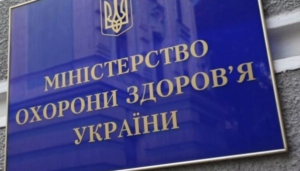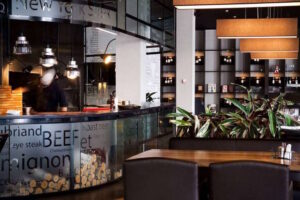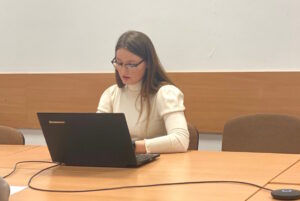
The total area of residential buildings, which are issued permits for construction works (new construction) in 2022 decreased by 1.9 times compared with 2021 – up to 6.67 million square meters, said the State Statistics Service (Derzhstat).
According to statistics agency, in January-December 2022, the total area of new construction of apartment buildings was 6 million 528.5 thousand square meters (98% of the total volume). The number of apartments in apartment buildings declared at the beginning of construction was 85 thousand, which is 41% less than last year.
In Kiev last year, the total area of new housing construction decreased by 70% to 878.3 thousand square meters. m, in the Kiev region – by 33% – to 1.86 million square meters. m.
According to State Statistics Committee of Ukraine, in Lviv region the volume of new construction decreased only by 8% compared to the previous year and amounted to 1.01 million square meters. This is the smallest drop among all the regions.
In Khmelnytsky region the volume of new construction was decreased by 40% to 330.8 thousand m2 , in Odessa region – “minus” 70%, to 265.3 thousand m2 , in Kharkiv region – decreased by 69%, to 214.3 thousand m2 , in Ternopil region – “minus” 20%, to 258.7 thousand m2 , in Ivano-Frankivsk region – decreased by 16%, to 204.4 thousand m2.
At the same time, the volume of new construction in the Volyn region amounted to 425.1 thousand square meters in 2022, which is 2.3 times more than last year. The volume increase against the previous year was also recorded in the Rivne region – “plus” 13%, up to 194 thousand square meters.
In other regions of Ukraine the volume of new construction last year showed a drop to the previous year and was less than 200 thousand square meters.
Gosstat reminds that the figures do not include the temporarily occupied territory of the Crimea and Sevastopol, as well as part of the temporarily occupied territories of Donetsk and Luhansk regions.

All health care institutions in Ukraine must register and start working in the electronic health care system (EHS) by March 31, 2022.
As the Ministry of Health reminds on its website, this is stipulated by the licensing requirements for economic activities in medical practice and applies to all business entities.
In particular, the Ministry of Healthcare specifies that all legal entities carrying out medical practice business activities must be registered in EHS, except for entities engaged in business activities in the forensic medical areas.
In particular, the Ministry of Health notes that laboratory institutions, sanatoriums, and educational institutions that provide medical care within the institution should be registered in the EHR.
“The full transition to digital recording of all medical records will occur gradually and will involve additional changes in other regulatory and legal acts,” the department notes.

The European Parliament adopted updated EU regulations on the allocation of efforts to reduce the maximum allowable level of greenhouse gas emissions in member states at a plenary session in Strasbourg on Tuesday.
The bill was approved by 486 votes, with 132 against and 10 abstentions.
The said novelty establishes mandatory annual greenhouse gas emission reductions for motor vehicles, building heating, agriculture, small industrial plants and waste management for each EU member state.
“The revised law increases the 2030 greenhouse gas emission reduction target at the EU level from 30 percent to 40 percent from 2005 levels. For the first time, all EU countries must now reduce greenhouse gas emissions with targets ranging from 10% to 50%,” according to the European Parliament’s communiqué on the vote.
The document explains that the 2030 targets for each member state are based on GDP per capita and economic efficiency indicators. EU countries will have to ensure that they do not exceed their annual quotas on greenhouse gas emissions every year.
In addition, the updated regulation includes “limits on the ability to trade, borrow and save emissions.”
“There are limits on how much emissions member states can save in previous years, borrow from future years, and how much they can trade allowances with other member states,” the European Parliament explained.
The text of the new law must now be formally approved by the EU Council, after which it will be published in the Official Journal of the European Union and enter into force in 20 days.

The Lenten menu was made taking into account the preferences of guests who adhere to dietary restrictions due to religious beliefs. As well as for those who prefer plant-based foods in their diet.
“When preparing the Lenten menu, we paid a lot of attention to the products. Our main goal is to make our meals tasty, nutritious and with the necessary amount of micronutrients, which the body lacks at the beginning of spring” – chef of BEEF restaurant.

The first dishes of the Lenten menu are familiar to us from our childhood – Lenten borscht with prunes and smoked pears and mushroom soup.

The appetizers are a vegetable terrine of grilled bell peppers, zucchini, eggplant, and tomatoes, and a salad with baked beets, granola, and tofu mayonnaise. For the salad, the chef bakes the beets in salt and serves them in raspberry sauce, adds rosemary granola and tofu mayonnaise. Mayonnaise has the right to live when it is really healthy.

The main dishes are baked cauliflower with coconut milk polenta, tagliatelle with tomatoes, and green risotto with pickled tomatoes. BEYOND MEAT meatballs with Jerusalem artichoke cream are a tasty alternative for those who don’t eat meat but miss its taste.

It’s worth a try, because we’re expecting even more premieres on the menu in the spring!




Civilian casualties from Feb. 24, 2022, after Russia launched its war against Ukraine, to March 12, 2023, totaled 2,965 civilians (March 5, 21,793), including 8,231 deaths (8,173), the UN Office of the High Commissioner for Human Rights (OHCHR) said Monday.
“OHCHR believes that the real number of civilian deaths or injuries is significantly higher, as many reports from places where such cases have occurred continue to require further confirmation, while information from some places where fighting is ongoing is delayed,” the UN data document noted.
This is the case, for example, in such locations as Mariupol (Donetsk region), Lysychansk, Popasna, and Severodonetsk (Luhansk region), where numerous civilian deaths or injuries have been reported.
According to confirmed UN figures, 3,664 men, 2,173 women, 260 boys and 203 girls were killed, while the gender of 31 children and 1,900 adults could not yet be determined.
Among the 1,734 wounded, 413 boys and 295 girls, as well as 271 children whose gender has not yet been determined.
Compared to March 5, two children were killed and 11 others were wounded.
Whereas previously the OHCHR’s update on the number of casualties was issued daily, and then only on weekdays, it has become weekly since July. This report, like the previous one, provides data by month.
According to them, the number of deaths in February dropped to 138 from 198 in January and 205 in December, but in the first 12 days of March it was 84.
March remains the deadliest month for civilians, according to the UN, with at least 3,968 deaths. In April, according to an OHCHR publication, the number of civilian deaths due to the war dropped to 761, in May to 510, in June to 422 and in July to 378. There were 358 deaths in the first five days of the war from Feb. 24-28, 332 in August, 387 in September, 305 in October and 184 in November.
The number of wounded in February – 451 – was also the lowest since the beginning of the war: in January there were 539, in December – 617, in November – 541, in the first five days of the war last February – 464, and in the 12 days of this March – 209. In October the number of wounded dropped to 795 from 976 in September, when it was higher than the August figure of 917. Prior to that, the number of wounded exceeded a thousand each month: July – 1126, June – 1104, May – 1136, April – 1887, March – 2972.
According to the report, since the beginning of March this year, 72 people have been killed by large-area explosive weapons and another 182 have been wounded, while mines and explosive remnants of war have killed 12 people and wounded 27 (13 percent of total casualties).
Government-controlled territories accounted for 83 percent of the casualties in March, according to the UN.
The summary traditionally states that the increase in numbers to the previous summary should not be attributed only to cases after March 5, as the Office verified a number of cases from previous days during that period.

In March, the University of Łódź hosted an international scientific conference “Between the Reality of War and the Rhetoric of Peace”. The event was held under the patronage of the Voivode of Lodz and the Rector of the University of Lodz. This conference is a part of the Polish-Ukrainian art project aimed at popularizing the works of war artists, holding exhibitions of their works abroad, and publishing books about them as a way of their adaptation in peaceful life after the victory and overcoming the consequences of PTSD.
Aneta Pavlovska, Deputy Dean of the Faculty of Philosophy and History of the University of Lodz, Doctor of Science, Professor, who chaired the conference, emphasized the relevance of the project and spoke about the first such experience, the organization of 7 exhibitions of photographs by Captain Serhiy Belinsky, a press officer of the 28th separate mechanized brigade named after the Knights of the Winter Campaign, a famous musician and art photographer. Two catalogs of his works were published, scientific articles were written, and a monograph on Serhiy’s work in peacetime and wartime is currently being published at the Institute of Art History of the University of Lodz.

The following report was made by Yulia Ivashko, Doctor of Architecture, Professor at the Kyiv National University of Construction and Architecture, and press officer Serhiy Belinsky by phone from the Bakhmut direction.
The reports by Anastasia Urakina, a graduate student at the Kyiv National University of Construction and Architecture, and Agnieszka Gralinskey-Toborek, a doctoral student and professor at the University of Lodz, were directly related to the events of the war in Ukraine.
Anastasia Urakina presented a program of psychological rehabilitation and art therapy for people affected by the war, developed jointly with the Kyiv think tank “Experts Club“. The program primarily involves group work, which will be led by professional psychologists. Classes will be held at the “Experts Club“.
Anastasia Urakina’s theses on art therapy methods were a continuation of Ms. Agnieszka Gralinskay-Toborek’s discussion on which works of war survivors can be exhibited without harming the person, and which are only part of PTSD treatment.
It is worth noting that for the first time, Polish scholars had the opportunity to ask a Ukrainian artist at war questions live. Aneta Pavlovska asked how it is possible to remain an artist in the face of danger even in war. Serhiy answered that he has been in the army since 2021, he is used to it, his camera is always with him, and it is no less important for him than an information war with the enemy.
Yulia Ivashko showed a presentation of Serhii’s photographs and spoke about future plans to expand the circle of artists at war. The same point was emphasized by the Director of the Institute of Art History, Doctor of Science, Professor Piotr Gryglewski.
There were 18 presentations aimed at highlighting the work of military artists who experienced their own experiences, and the topic of war in art was also covered. Lukasz Sadowski, PhD, from the W. Strzemiński Academy of Arts in Lodz, highlighted the evolution of propaganda in Russian military painting.

Justyna Kobylarczyk and Dominika Kusznierz-Krupa, PhDs, professors at the T. Klczyuszko University of Technology in Krakow, who organized an exhibition Old-New Town at their university, showing Ukrainian cities before and during the war, said that such projects are needed.
Andriy Dmytrenko, PhD in Engineering, Associate Professor of National University “Yuri Kondratyuk Poltava Polytechnic”, highlighted the evolution of artistic messages during the war in Ukraine.
The conference ended with the presentation of the book “And the Light in the Darkness Shines” by Serhiy Belinsky and Yulia Ivashko about the war in Ukraine, published by the Krakow-based Impuls Publishing House.
ANASTASIA_URAKINA, ART, ART THERAPY, CLUB_OF_EXPERTS, CONFERENCE, KNUBA, LODZ_UNIVERSITY, PTSD, SERHIY_BELINSKY, YULIA_IVASHKO, АНЕТА_ПАВЛОВСЬКА